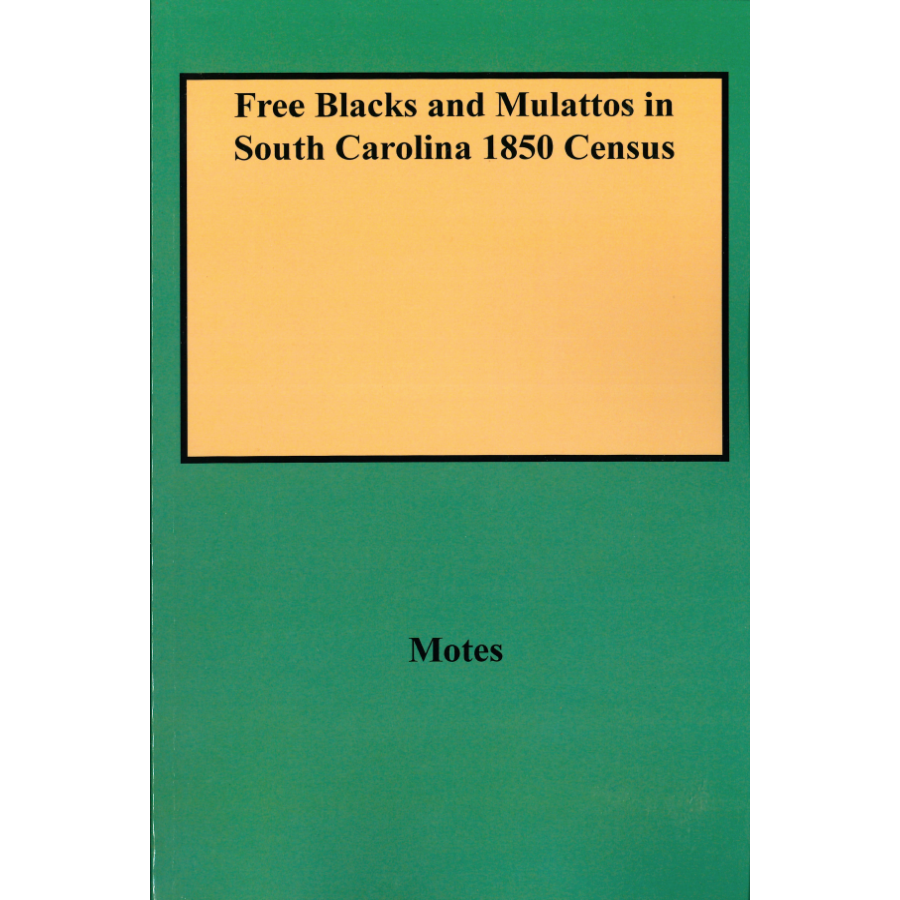Free Blacks and Mulattos in South Carolina 1850 Census
Couldn't load pickup availability
From a genealogical standpoint, the 1850 federal census was a watershed event because it marked the first U.S. census to record the full name and a significant amount of demographic data on each person in a given household, whether family member or not. In a work that will have significance for social historians as well as genealogists, Margaret Motes has combed through a microfilm copy of the 1850 census manuscript for the state of South Carolina in order to unearth every reference to a free black or mulatto that can be found there. The end result of her efforts is the book Free Blacks and Mulattos in South Carolina 1850 Census, an alphabetically arranged listing of 8,160 free blacks and mulattos between the ages of one month and 112 years of age.
The data for free persons of color in South Carolina in 1850, which spans twenty-nine different counties, records the following for each individual named in the census: name, age, sex, occupation, color, place of birth, household and dwelling number, and county. Also noted are persons in the household of another family member; in the household of someone else; listed at hotels (servants); or in a household headed by a white person. While the majority of persons tabulated were born in South Carolina, other free blacks were born in Africa, St. Domingo, Cuba, Virginia, Maryland, North Carolina, Georgia, Florida, and New York. Similarly, while most South Carolina free blacks were employed as farmers, carpenters, laborers, planters, tailors and shoemakers in 1850, a number of others had found work as barbers, blacksmiths, brick masons, engineers, locksmiths, mechanics, painters, pilots, saddlers, wagon makers, washwomen, and numerous other occupations. This publication, which boasts of indexes to names, places and occupations, is bound to inform and intrigue genealogists and historians alike as they discover what it meant to be free and African-American only a few years before the Civil War.
Margaret Peckham Motes
(2000), 2009, paper, 254 pp.
ISBN: 9780806350264
102-9378
